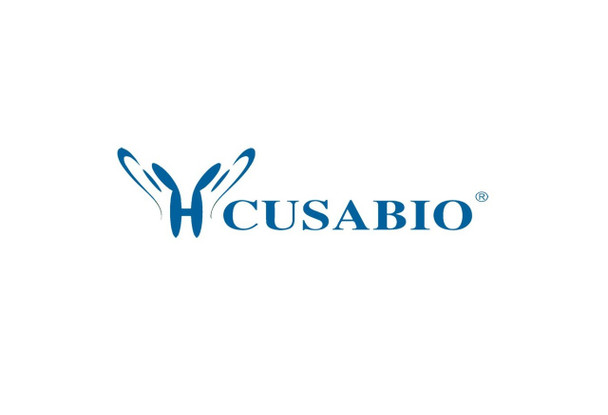Cusabio Human Recombinants
Recombinant Human Fc receptor-like protein 6 (FCRL6), partial | CSB-YP718779HU
- SKU:
- CSB-YP718779HU
- Availability:
- 25 - 35 Working Days
Description
Recombinant Human Fc receptor-like protein 6 (FCRL6), partial | CSB-YP718779HU | Cusabio
Alternative Name(s): Fc receptor homolog 6 Short name:FcRH6 IFGP6
Gene Names: FCRL6
Research Areas: Immunology
Organism: Homo sapiens (Human)
AA Sequence: LYLQAWPNPVFEGDALTLRCQGWKNTPLSQVKFYRDGKFLHFSKENQTLSMGAATVQSRGQYSCSGQVMYIPQTFTQTSETAMVQVQELFPPPVLSAIPSPEPREGSLVTLRCQTKLHPLRSALRLLFSFHKDGHTLQDRGPHPELCIPGAKEGDSGLYWCEVAPEGGQVQKQSPQLEVRVQAPVSRPVLTLHHGPADPAVGDMVQLLCEAQRGSPPILYSFYLDEKIVGNHSAPCGGTTSLLFPVKSEQDAGNYSCEAENSVSRERSEPKKLSLKGSQVLFTPASNW
Source: Yeast
Tag Info: N-terminal 6xHis-tagged
Expression Region: 20-307aa
Sequence Info: Extracellular Domain
MW: 33.7 kDa
Purity: Greater than 90% as determined by SDS-PAGE.
Relevance:
Reference: "FcRL6, a new ITIM-bearing receptor on cytolytic cells, is broadly expressed by lymphocytes following HIV-1 infection."Wilson T.J., Presti R.M., Tassi I., Overton E.T., Cella M., Colonna M.Blood 109:3786-3793(2007)
Storage: The shelf life is related to many factors, storage state, buffer ingredients, storage temperature and the stability of the protein itself. Generally, the shelf life of liquid form is 6 months at -20?/-80?. The shelf life of lyophilized form is 12 months at -20?/-80?.
Notes: Repeated freezing and thawing is not recommended. Store working aliquots at 4? for up to one week.
Function: Acts as a MHC class II receptor
Involvement in disease:
Subcellular Location: Cell membrane, Single-pass type I membrane protein
Protein Families:
Tissue Specificity: Expressed by cytolytic cells including NK cells, effector and effector-memory CD8(+) T-cells, and a subset of NKT cells (at protein level) (PubMed:17213291, PubMed:18991291, PubMed:20933011). Also expressed in gamma delta T cells and in a rare subset of effector CD4(+) T-cells (at protein level) (PubMed:18991291). Expressed in spleen, skin, peripheral blood leukocytes, liver, lung, bone marrow, small intestine and placenta (PubMed:20933011). Expression among T-cells is greatly expanded in HIV-1 infected individuals, and includes not only effector and effector-memory CD8(+) T-cells but also populations of CD4(+) T-cells (PubMed:17213291, PubMed:20933011). Expression among CD8(+) T-cells and NK cells is expanded in individuals with chronic lymphocytic leukemia (CLL) but is reduced in PBMCs from patients with acute (AML), chronic myeloid leukemia (CML) and non-Hodgkin's lymphoma (PubMed:18991291, PubMed:20933011). Expression is higher in PBMCs and/or CD3(+) cells of patients with autoimmune diseases, such as rheumatoid arthritis (RA), systemic lupus erythematosus (SLE) and idiopathic thrombocytopenia purpura (ITP) (PubMed:20933011). In contrast, expression in CD3(+) cells from patients with lupus anticoagulans (LA) is higher (PubMed:20933011).
Paythway:
Form: Liquid or Lyophilized powder
Buffer: If the delivery form is liquid, the default storage buffer is Tris/PBS-based buffer, 5%-50% glycerol. If the delivery form is lyophilized powder, the buffer before lyophilization is Tris/PBS-based buffer, 6% Trehalose, pH 8.0.
Reconstitution: We recommend that this vial be briefly centrifuged prior to opening to bring the contents to the bottom. Please reconstitute protein in deionized sterile water to a concentration of 0.1-1.0 mg/mL.We recommend to add 5-50% of glycerol (final concentration) and aliquot for long-term storage at -20?/-80?. Our default final concentration of glycerol is 50%. Customers could use it as reference.
Uniprot ID: Q6DN72
HGNC Database Link: HGNC
UniGene Database Link: UniGene
KEGG Database Link: KEGG
STRING Database Link: N/A
OMIM Database Link: OMIM









